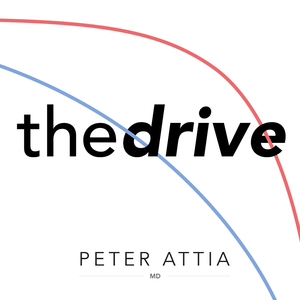
Time to Move Beyond 'Sick Care' to True Health Care
04/14/22 • 22 min
It takes all types, especially to throw a mammoth conference like HIMSS. Payers, providers, investors and solutions vendors all gather together in their tens of thousands under one roof to discuss the future of technology in healthcare. From all over the world, the experts in the field travel to learn, give presentations, network with their peers, and attempt to divine the future of the market.
But one group is usually underrepresented: educators. Injecting new blood and fresh ideas into healthcare tech will be an important component of revitalizing our battered healthcare system. Yet professors and universities in the sorely needed tech education sector were few and far between at the conference this year.
To be sure, medical and nursing schools occupied a solid place in the conference agenda. Provider systems nationwide are in the midst of a nerve-wracked hand-wringing session when it comes to the looming staffing crisis, which is already bad and getting worse. However, if someone wants to work in healthcare without being a doctor or a nurse, the options are less clear.
We were able to sit down with Dr. Gabriela Wilson, Professor and Co-Director at the Multi-Interprofessional Center for Health Informatics, UT-Arlington, to discuss these issues and more. She brings decades of experience in biochemistry, biotechnology, molecular biology and informatics to the table, along with a wider global perspective on healthcare in America.
It takes all types, especially to throw a mammoth conference like HIMSS. Payers, providers, investors and solutions vendors all gather together in their tens of thousands under one roof to discuss the future of technology in healthcare. From all over the world, the experts in the field travel to learn, give presentations, network with their peers, and attempt to divine the future of the market.
But one group is usually underrepresented: educators. Injecting new blood and fresh ideas into healthcare tech will be an important component of revitalizing our battered healthcare system. Yet professors and universities in the sorely needed tech education sector were few and far between at the conference this year.
To be sure, medical and nursing schools occupied a solid place in the conference agenda. Provider systems nationwide are in the midst of a nerve-wracked hand-wringing session when it comes to the looming staffing crisis, which is already bad and getting worse. However, if someone wants to work in healthcare without being a doctor or a nurse, the options are less clear.
We were able to sit down with Dr. Gabriela Wilson, Professor and Co-Director at the Multi-Interprofessional Center for Health Informatics, UT-Arlington, to discuss these issues and more. She brings decades of experience in biochemistry, biotechnology, molecular biology and informatics to the table, along with a wider global perspective on healthcare in America.
Previous Episode

HIMSS21 Interviews: Lightbeam's Jerry Shultz on Enabling a Sustainable Path to Value-Based Care
The path to implementing value-based care in the U.S. healthcare system has been fraught with challenges and peril. There’s quite a bit of momentum when it comes to maintaining the current model, as well as the financial incentives already in place. As COVID drags on, hospital systems are facing staffing shortages, physician burnout and a slew of financial setbacks.
It’s no surprise that switching to a VBC model has often taken a backseat as a priority, as providers around the country focus on putting out the immediate fires and making sure they can stay afloat. But as always, there is potential to grow and change. Health IT vendors are developing solutions that can assist providers with data collection and management, patient monitoring, and more, with the goal of enabling a shift away from the volume model.
Aiming to eliminate “alert fatigue” and aid in physicians being able to care for more patients at once, without spending a disproportionate amount of time fiddling with an EHR or platform, organizations like Lightbeam Health Solutions are setting the stage for a transition to value-based care.
We sat down with Lightbeam Health’s President, Jerry Shultz, at HIMSS ’21 to discuss this issue, how providers can both save money and better serve their patients, the future of value-based care, and more.
Next Episode

Bias in AI: Illuminating the Unseen with Dr. Tania Martin-Mercado
On the latest episode of Chilcast: Healthcare Tech Talks, we are delighted to feature an interview with Dr. Tania Martin-Mercado, an expert in clinical research, biotech and public health. She joins Chilmark Senior Analyst Jody Ranck for a discussion on the issue of bias in AI: how it’s harmful to patients individually and our culture as a whole, how to add diversity to data teams in meaningful and authentic ways, and what organizations can do to tackle this issue as more algorithms are deployed for care delivery.
ChilCast: Healthcare Tech Talks - Time to Move Beyond 'Sick Care' to True Health Care
Transcript
AI-generated transcript:
John Moore III: [00:00:00] Gabriela, you’ve been to HIMSS for you were saying about a decade now since 2011. Can you tell me a little bit about what you have seen that has changed in the industry and how the adoption of informatics is actually starting to have an impact on delivery of care?
Dr. Wilson: [00:00:15] Well, thank you so much for having me here today. I’m so excited. And yes, I thought it was 11 years. But you�
If you like this episode you’ll love
Episode Comments
Generate a badge
Get a badge for your website that links back to this episode
<a href="https://goodpods.com/podcasts/chilcast-healthcare-tech-talks-238453/time-to-move-beyond-sick-care-to-true-health-care-26542258"> <img src="https://storage.googleapis.com/goodpods-images-bucket/badges/generic-badge-1.svg" alt="listen to time to move beyond 'sick care' to true health care on goodpods" style="width: 225px" /> </a>
Copy




